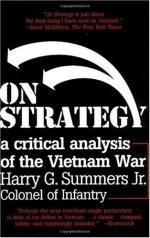|
This section contains 2,150 words (approx. 8 pages at 300 words per page) |

|
SOURCE: "Mechanism vs. Organism: Anthony Burgess' A Clockwork Orange," in Modern Fiction Studies, Vol. 24, No. 4, Winter, 1978–1979, pp. 538-41.
Rabinovitz is an American critic and educator. In the following essay, he argues that the twenty-first chapter of A Clockwork Orange reveals a thematic synthesis of free will and determinism.
In his most famous novel, A Clockwork Orange, Anthony Burgess explores a number of interesting issues such as free will, the meaning of violence, and a cyclical theory of history. Resolving these issues, however, is complicated by an extraneous factor; the American editions of the novel lack Burgess' original conclusion and end with what is the penultimate chapter of the first English edition.
A good summary of the deleted section is provided by Burgess himself:
In the final chapter of the British edition, Alex is already growing up. He has a new gang, but he's tired of leading it; what...
|
This section contains 2,150 words (approx. 8 pages at 300 words per page) |

|


